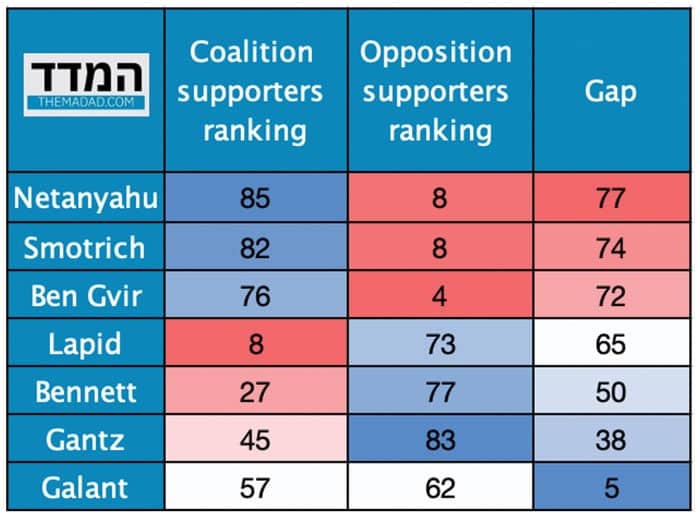 Christopher Furlong/Getty Images
Christopher Furlong/Getty Images It is somewhat narcissistic to ask this question when a war is raging, and yet, it is essential, because it is a question that is truly a gate to other important questions. So let me start by telling you why I ask this question: Last Thursday, as he often does, David Suissa – the editor of the Jewish Journal – send me the digital copy of the newspaper. Intrigued by its magnificent cover I started reading it, slowly, from beginning to end.
There were many great articles in the newspaper, most of which had something to do with Israel’s war, and at some point, I realized that there are two basic approaches to writing about the war in the Jewish Journal. One is more analytical, of which there were few articles. The other one is more motivational, of which there was a lot.
Trying to be analytical is a second nature to me when I write about Israel – and I usually leave the motivational bit to other people. Not that it’s beneath me or above me to write this or that. It’s just the way I am. And in most times, I have no qualms about my tendencies.
But reading the Journal last week, I started feeling queasy. I thought my habit of being analytical is just too cold, too detached, during a time of war. Maybe, I thought, keeping my habit unchanged is in itself a sign that I haven’t yet fully digested the enormity of the events unfolding.
Many Israelis have not yet fully digested the enormity of moment, as I discovered when I asked them last week about their post-attack political views. On the one hand, almost all of them are saying that things must change, that the country is now “disillusioned.” And yet, when they are asked about their personal views, it is often the case that they haven’t changed their minds – the only change is for them to now assume that the “other side” must have recognized that they were right all along.
I’ll give one example: many right-wing Israelis currently expect the center-left to accept their long-argued position that the 2005 disengagement from Gaza was an error. Some of them, more than a few, also expect Israel to “return” to Gaza, settlements included. Of course, Israelis on the center-left, while disillusioned in their own way, do not accept this conclusion, nor wish to return to a place in which Hamas culture is the norm. Sending settlers to live inside Gaza, when Israel could not even properly guard the Kibutzim near Gaza, sounds to most of them like a terrible idea.
Last week, a famous Israeli singer-songwriter became the focus of controversy. Appearing before soldiers he sang words such as “going back to Gush Katif” – the settlement bloc that was evacuated in 2005 – as he was striving to excite his crowd before going to battle. Some commentators responded harshly, believing this to convey a dangerous message. Others were more forgiving, reminding the critics that electrifying a group of soldiers before a battle is not a political-analytical exercise. Let him sing what he needs to sing to inject courage and determination into the spines of youngsters who must risk their lives for us.
The dilemmas of the singer, of the leader, of the spokesperson, of the columnist, are not exactly the same, but the fiercer the war, the more similar they become. Is it our job to tell the story, or to help win the war? Does our job require that we be impartial, or does it require that we be partisan? Surely, this is never a binary choice. It is not a choice between telling the blunt truth and telling a complete lie. And yet, the dilemma is there. It is there when I’m on Israeli TV, talking to Israelis in Hebrew, and it is there with some nuances when I’m writing for you, Americans who live far away and still want to know what’s going on.
So here is my detached analysis: Things are complicated. Israel’s advance in Gaza seems to be well-executed, but international pressure on Israel to pause is growing, there is a worrying vagueness concerning the plans for the “day after,” and the risk of a second front in the north is becoming much higher. In fact, as I write on Tuesday, I can’t even say with confidence that as you read these lines a war in the north is still an “if” and not an “is.” When (and if) such war becomes an “is,” the northern war is going to overshadow the southern war.
And here is my motivational bit: Israel is strong and is determined to win. Israel is going to win – mainly because it has no alternative to winning. And the ultimate test for winning would be simple: Israelis must have the ability to live securely on their borders. So, if people go back to their homes on the Gaza border and the Lebanese border, Israel won. If not, we must keep the fight until they do – and we will.
(So much for an attempt at being motivational).
Something I wrote in Hebrew
Do we see real change in Haredi society’s willingness to contribute to Israel’s security because of the war?
If you’re looking at Israeli social media feeds, you won’t have to put in a lot of effort to find a post, or a photo, or a video of an ultra-Orthodox men in uniform… Some of these posts will declare that “the world is changing,” that “something is starting to move,” that “the ultra-Orthodox prove that they are part of society.” Depending on your feed, you’ll probably also come across bitter-sour messages of the opposite kind. “This is all a bluff,” “Haredis just engage in a public relations exercise,” “two weeks in the army is not real service.” Which of the two interpretations is corrct? I wish there was an answer. At this point, both are right, subject to three conditions: How optimistic you are, what your expectations are and what future developments will occur.
A week’s numbers
Israelis were asked: how much do you want this person as a national leader? Their responses were translated to a 1 to 100 ranking. Here’s how several notable leaders fared with coalition and opposition supporters. As you can see, some of them are more polarizing than others.

A reader’s response:
Lea Palee wrote: “I am not worried because God is on Israel’s side.” Response: I’m still worried because God was also on Israel’s side on October 7th.”
Shmuel Rosner is senior political editor. For more analysis of Israeli and international politics, visit Rosner’s Domain at jewishjournal.com/rosnersdomain.























 More news and opinions than at a Shabbat dinner, right in your inbox.
More news and opinions than at a Shabbat dinner, right in your inbox.